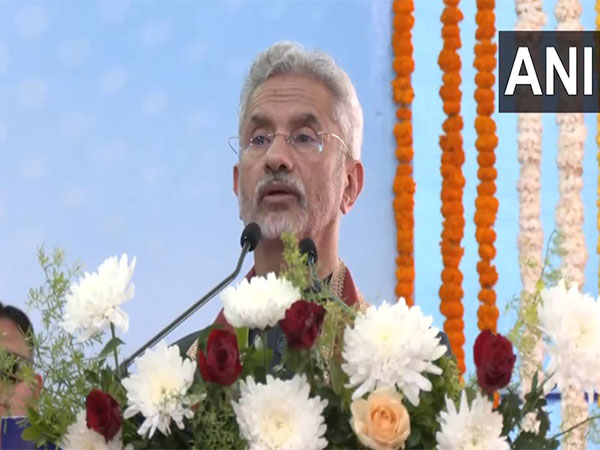Gandhinagar (Gujarat): Highlighting the imperative to invest in environmentally friendly technologies, External Affairs Minister S. Jaishankar emphasised that the government is currently directing its efforts towards this crucial area.
The minister underscored the necessity of considering the security implications associated with external dependence on renewables or fossil fuels.
“If we invest in green and clean technologies–not exactly, not surprisingly–that is exactly where the government is focused today. We have great skill at hedging the risks of external energy exposure, but when it comes to fossil fuels, that same awareness, let alone response, is not yet there in much of the world when it comes to renewables,” Jaishankar said, while speaking at the 3rd convocation of Rashtriya Raksha University in Lavad, Gandhinagar.
“A serious consideration of the security implications of external dependence on renewables is very much the need of the day,” he said.
Jaishankar delved into the pressing issue of water security, acknowledging the impact of new approaches to harvesting, usage, and conservation across the country.
“Water security is another looming issue, where new thinking on harvesting, usage and conservation has already made its impact across the country. The growing demand of an expanded population depends on growing demand for water resources,” Jaishankar said.
“The emergence of new technologies in this particular field and apprehensions emanating from climate change, all of them combined, contribute to the need for change in conversations,” he added.
Recently, Prime Minister Narendra Modi attended the World Climate Action Summit of the Conference of Parties-28 in Dubai, UAE.
His visit was defined by fruitful engagements with global leaders and path-breaking initiatives for accelerating global climate action.
During his UAE visit, PM Modi noted that climate change has had an immense impact on the countries in the Global South. The PM said that to fulfil the aspirations of the Global South, climate finance and technology are essential.
“We all know that countries in the Global South, including India, have had less of a role to play in climate change. But the impact of climate change on them is immense. Despite a lack of resources, these countries are committed to climate action,” the Prime Minister said at the COP28 Presidency’s session on Transforming Climate Finance then.
COP28 was held from November 28-December 12 under the Presidency of the UAE in Dubai.
PM Modi, along with Sweden’s PM Ulf Kristersson, President of Mozambique Filipe Jacinto Nyusi and European Council president Charles Michel, launched the web portal of the Green Credits Programme at the COP28 World Climate Action Summit in Dubai.
“The manner in which we give importance to our Health Card in life, we have to similarly start thinking in the context of environment. We will have to see what is to be done to add positive points to Earth’s Health Card. I think this is what Green Credit is,” PM Modi said.
Moreover, India and Sweden also announced the launch of the Leadership Group for Industry Transition 2.0 (LeadIT 2.0) in Dubai.
The PM said the initiative will have three focuses. “First, inclusive and just industrial transition. Second, co-development and transfer of low-carbon technology; and third support for emerging technology. To make all this possible, we are also launching the India-Sweden industrial transformation platform. I have full belief that we will write a new green growth story for the generation to come,” PM Modi said. (ANI)












